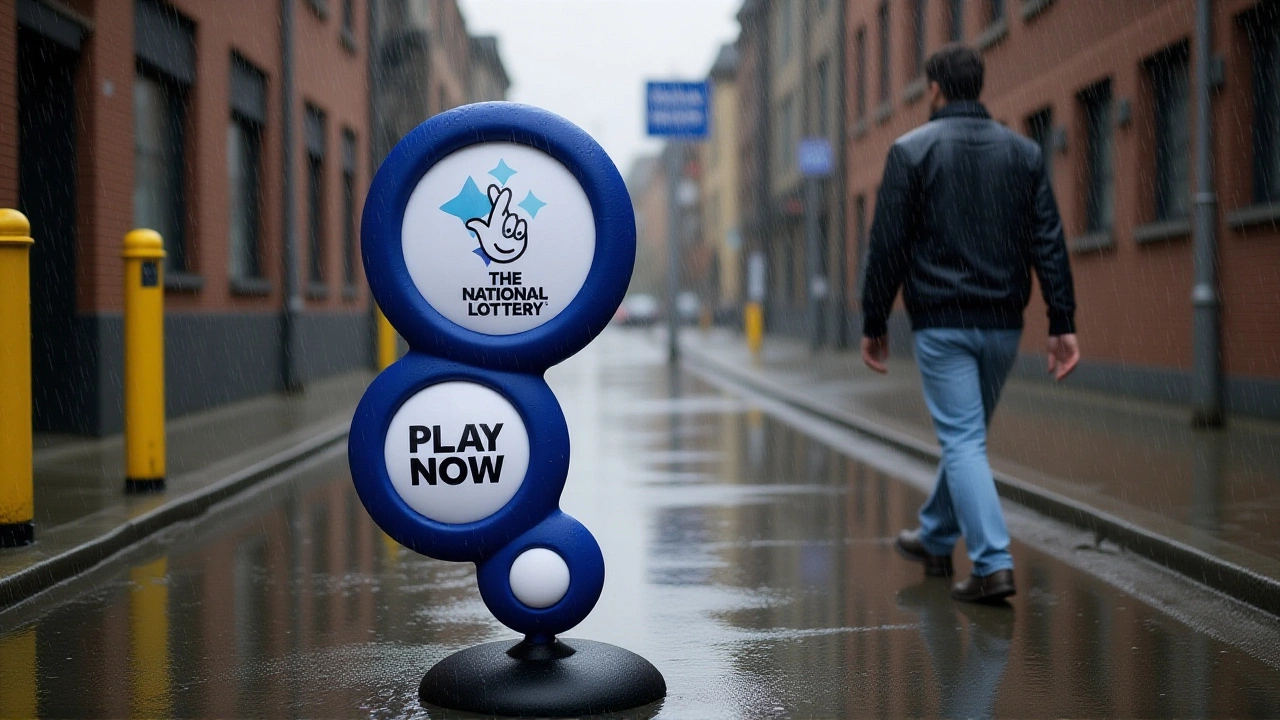When Claudia Karvan Winkleman, presenter for the National Lottery, announced the numbers on Saturday night, the mood was electric despite the fact that the Lotto jackpot would roll over again. The draw – officially National Lottery Lotto draw 3112London – took place at 7:45 p.m. BST in the capital and used the Lotto 2 machine with a six‑ball set.
What happened: the draw results
The winning combination came out as 06, 39, 43, 52, 58 and 59, with the bonus ball 19. As the presenter reminded viewers, “It could be you… Check your ticket.” Yet no ticket matched all six numbers, so the £7,053,955 jackpot stayed untouched and rolled over for a second straight draw – a rare double rollover in Lotto history.
How the prize pool was split
Even without a jackpot winner, 791,784 players walked away with something. The total prize fund of £4,013,674 broke down as follows:
- Match 5 (40 winners) – £1,750 each, totalling £70,000.
- Match 4 (2,837 winners) – £140 each, totalling £397,180.
- Match 3 (70,310 winners) – £30 each, totalling £2,109,300.
- Match 2 (718,597 winners) – a free Lucky Dip ticket (valued at £2) each, totalling £1,437,194.
The sheer volume of Match 2 winners highlights how many people dip their toes into the game each week. For most, that free ticket is the real incentive to keep playing.
Who runs the National Lottery
The draw is overseen by an independent adjudicator and operated by Camelot Group UK Lotteries Limited, the franchise holder since 1994. Camelot’s headquarters sit in London, and under the umbrella name The National Lottery the brand offers a suite of games, including Lotto, EuroMillions and Set Match.
Players must be 18 or older and physically located in the United Kingdom or the Isle of Man. The rules – laid out in the Games Rules and Procedures – require winners to claim prizes within 180 days of the draw date, a deadline that can feel tight for those who don’t check their tickets promptly.
Responsible gambling and Good Causes
The National Lottery also runs a “Dream Big Play Small” campaign, pushing tools like limit‑setting, “take‑time‑out” features and reminders. A toolkit is available via a short link (bit.ly/HealthyPlay‑Toolkit) for anyone who feels their play is getting out of hand.
Beyond the game, the lottery’s Good Causes programme has pumped over £43 billion into community projects since its launch. This weekend’s broadcast featured a Remembrance Day story titled “Helping warriors cope with the scars of war,” and Winkleman herself highlighted the broader impact under the banner “Because of You.”
What this means for players
For the 40 lucky Match 5 winners, a tidy £1,750 can cover a weekend getaway or a few months of bills. But the real headline for most people is the rolling jackpot. A double rollover pushes the next prize estimate to around £9 million, meaning the stakes feel higher and the temptation to buy an extra ticket grows.
Yet the odds of hitting the jackpot remain steep – roughly 1 in 45 million. The odds of any win, however, sit at about 1 in 10, which explains why the lottery still attracts more than 10 million participants each week.
Looking ahead: the next draw
The next Lotto draw is slated for Wednesday, 22 October 2025, with the jackpot projected to climb to roughly £9 million after this double rollover. Players can enter online via the official site or through the National Lottery app, which also offers instant result checking (bit.ly/LottoCheckResults).
If the jackpot lands on a winner this time, Camelot is contractually obligated to pay out within 30 days. Otherwise, the prize will roll over again, feeding a growing lottery fever that shows no signs of easing.
Frequently Asked Questions
How does the double rollover affect casual players?
Casual players often see a larger jackpot as a reason to buy an extra ticket, even though their odds don’t improve. The excitement can boost weekly sales, but it also means more people are spending money for a slim chance of winning.
What happens to the jackpot if there’s no winner again?
If the jackpot remains unclaimed, it rolls over to the next draw, adding to the prize pool and increasing the advertised amount. This process can repeat indefinitely until a ticket matches all six numbers.
When must winners claim their prize?
All prize claims must be lodged within 180 days of the draw date. Failure to do so results in the prize being returned to the National Lottery’s prize fund, which can then be redistributed in future draws.
How does the National Lottery promote responsible gambling?
Through its “Dream Big Play Small” initiative, the lottery offers a free toolkit that lets players set deposit limits, schedule “time‑out” periods, and receive reminder messages. The programme is advertised on the official website and within the mobile app.
Where can I find the official results for the next draw?
Results are posted on the National Lottery’s website (www.national‑lottery.co.uk), the official app, and on the YouTube channel shortly after each draw. Third‑party sites like Lottery.co.uk also publish the numbers, but the primary source remains the lottery operator.
